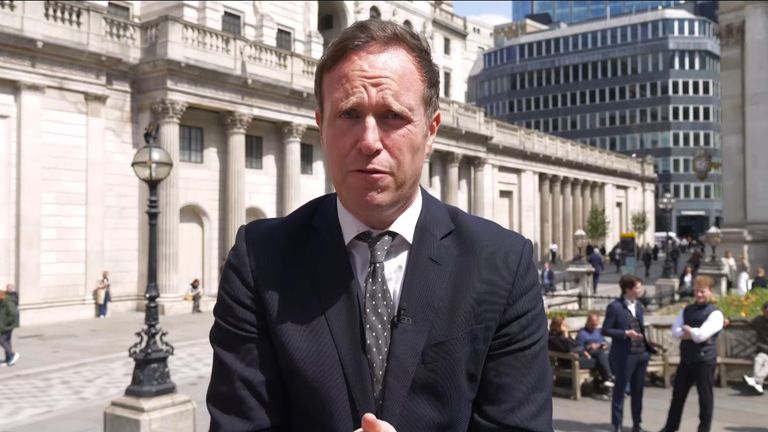Why many assume interest rates will fall further - but no one really has a clue
Let's deal, first of all, with the question many of you will have: after today's reduction to 4.25% will there be more interest rate cuts to come?

Today, the Bank of England did nothing to sway you - or the financial markets that bet on such things - from the assumption that after today's quarter percentage point cut there will be further reductions in the cost of borrowing.
Indeed, right now, financial markets assume the Bank will cut UK interest rates down to 3.5% by early next year, and the Bank didn't contradict that today.
But (this being economics, there's always a "but") if there was one theme that overarched the Bank's latest set of forecasts, it was that it's becoming fiendishly difficult to predict the future.
Take tariffs. In theory, the Bank thinks they'll actually be much less damaging than many had assumed, with the total impact not enough to push the UK into recession.
But that's based on a few important assumptions, chief among them that Donald Trump doesn't re-impose the reciprocal tariffs announced on 2 April - despite the fact that he's explicitly said they are only temporarily paused. It was based on the assumption that the UK wouldn't get a trade deal with the US, an assumption that was already out of date by the time the document was published.
No one really has a clue
The Bank's forecasts are, in other words, even more uncertain than usual.
Perhaps that helps explain why the nine members of the Monetary Policy Committee had a rare three-way split in their vote this month, with two members voting to leave rates on hold, two voting to cut them by half a percentage point, and the remaining five carrying the decision and reducing them by 0.25%.
Now, even taking this uncertainty into account, there are a few things one can take from today's Bank of England news, and the update from its American counterpart, the Federal Reserve, yesterday.
While tariffs are expected to push inflation up in the US, they are expected to push inflation down in the UK. The upshot is while the Federal Reserve is pausing its interest rate cuts, UK rates are coming down.
Every Bank of England forecast is, by definition, a historic document. Such things take time to model and write so, by the time they come out, they are always a little bit out of date. But never has this been more true of a Bank forecast than the one published today.
The big picture, however, is that no one really has a clue. No one knows what Donald Trump will do next. No one knows what the impact of his tariffs will be on the UK or, indeed, elsewhere. No one knows what this all spells for inflation or unemployment.
-SKY NEWS







